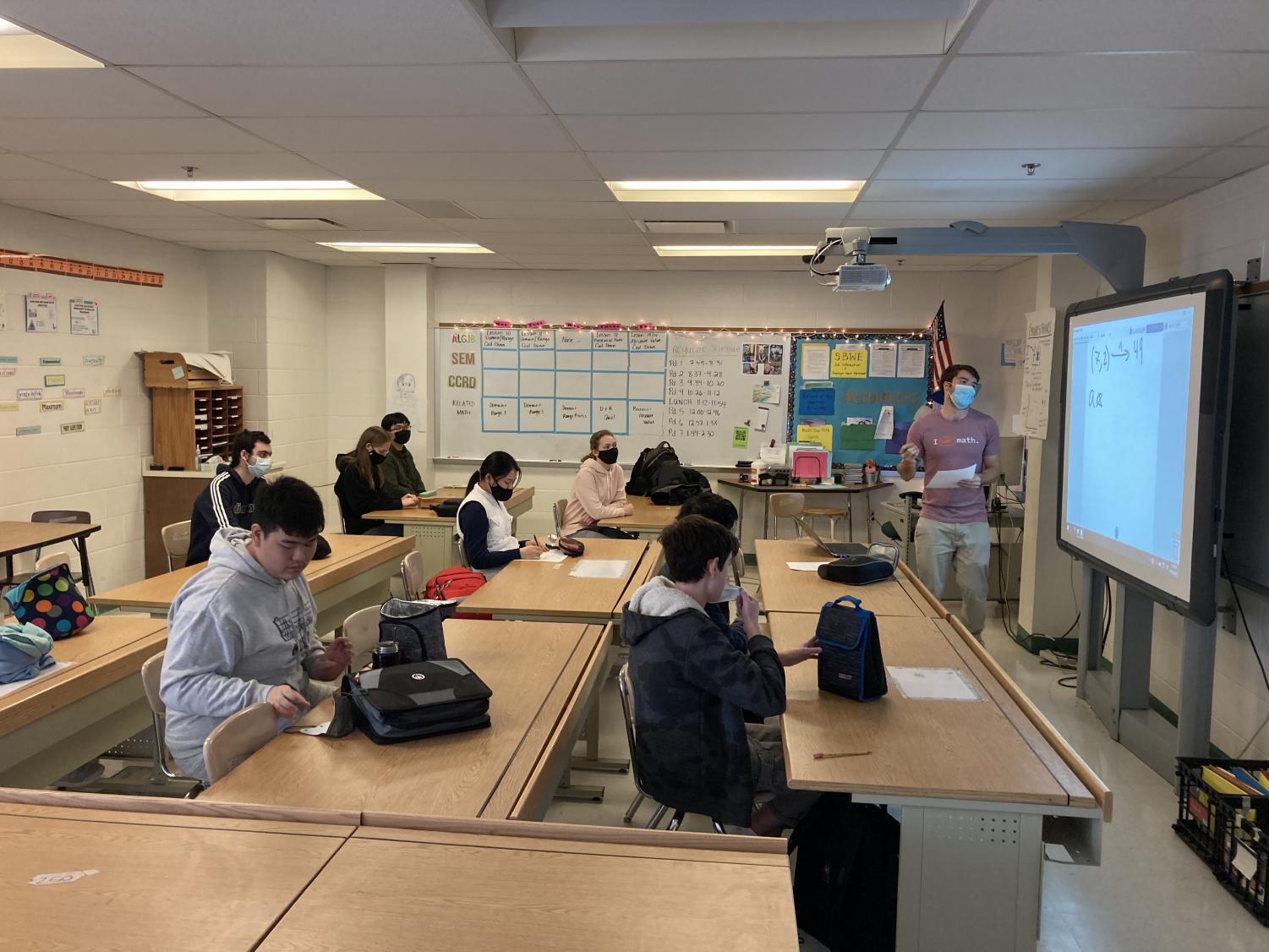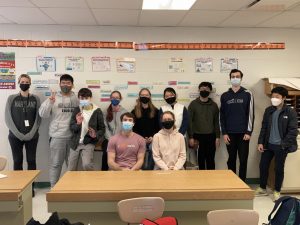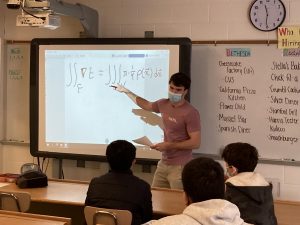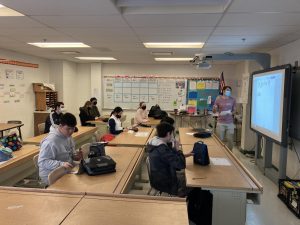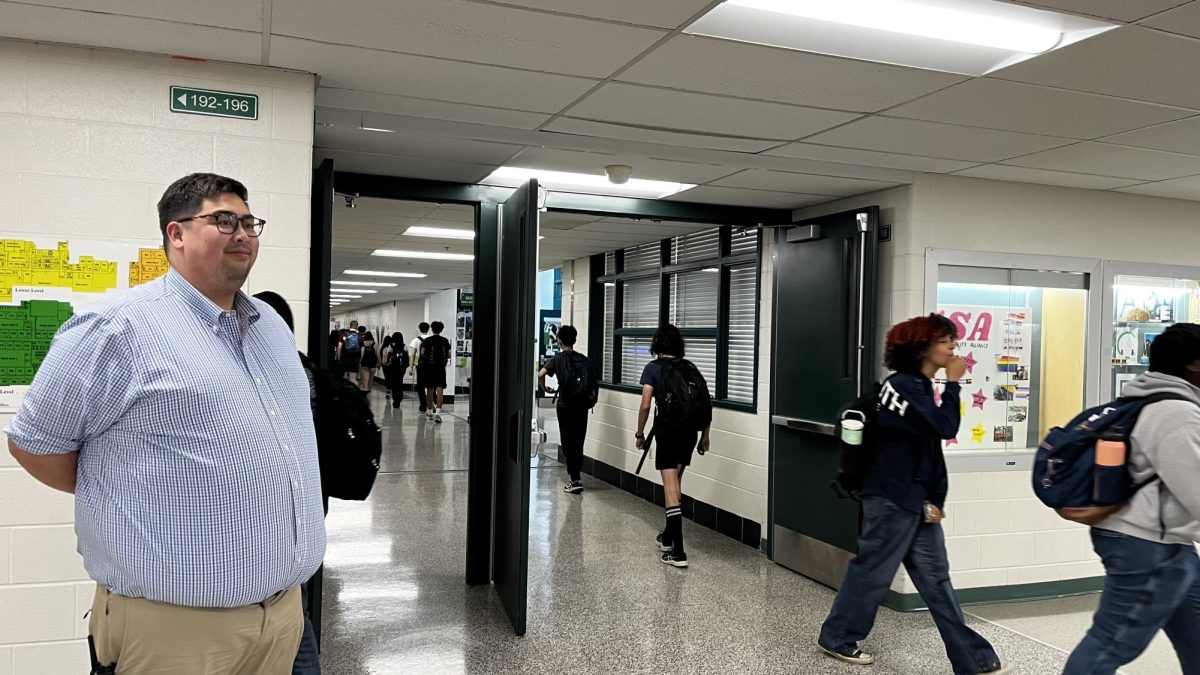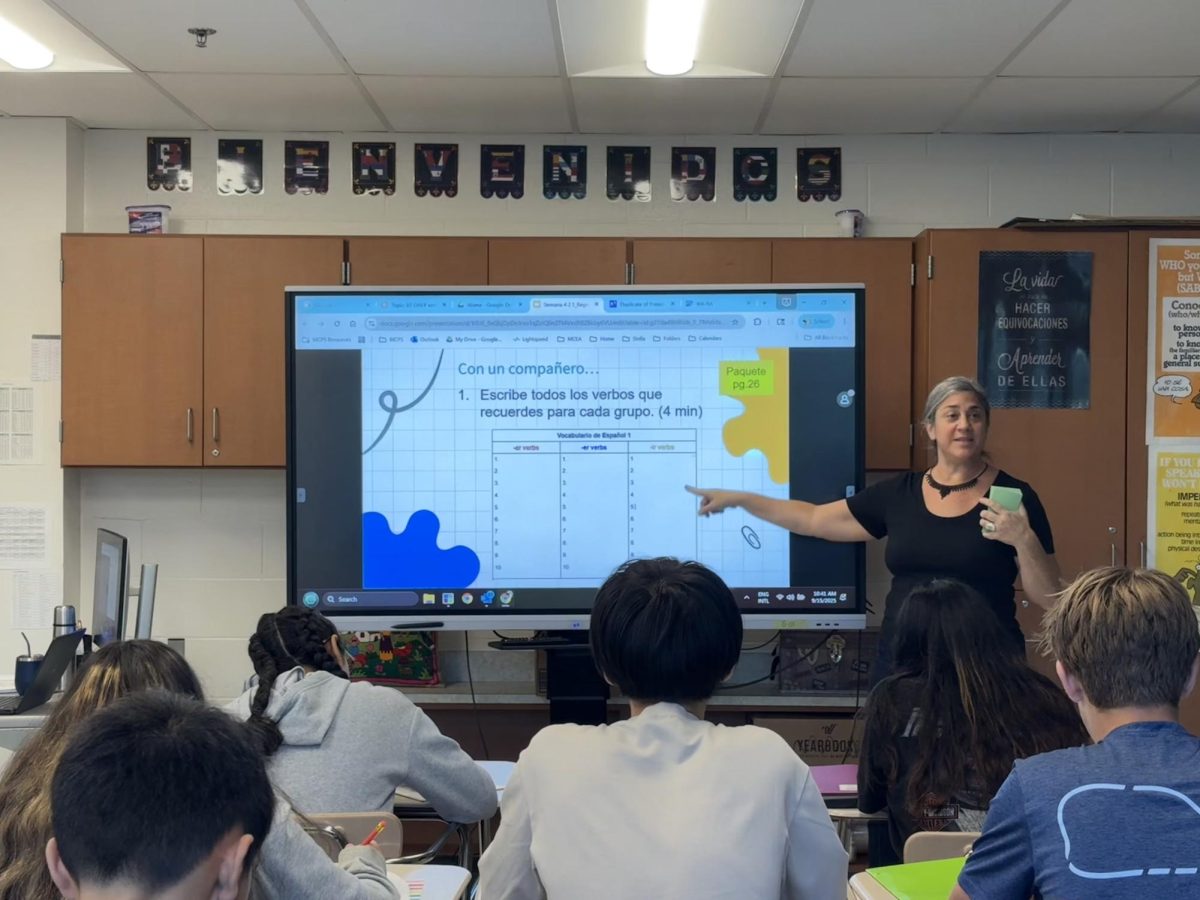When you walk into room 250 on Tuesdays and Wednesdays during lunch or after school, you won’t find a teacher leading a math lesson at the board but instead president of the Math Team, senior Ryal Leal. The students sit at desks, take notes and work on problems as Leal moves through the lesson, helping to prepare the team for the various competitions they compete in.
The WJ Math Team has had members advance in competitions as prestigious as the Harvard-MIT Tournament. Leal has been pushing the team these past four years so that they can reach such levels of success. He has been president since the end of his freshman year and has worked to guide the team through the pandemic. He hosted Zoom meetings last year and this year has been helping students rebound from online school.
“Coming out of the pandemic, a lot of students were lacking math skills. [The team] is a big energy commitment, and it’s harder for students to jump into competitive math like that. The primary thing we are doing right now to combat the mathematical atrophy that many students experienced over the pandemic is going much more slowly with our curriculum than we were hoping to,” Leal said.
Through the first quarter, the team had finished up with Algebra, but did not get to number theory as Leal had hoped. Despite this, the team has had success at a number of competitions.
The math team competes in county competitions and international ones. The county competitions are where the team faces off against rivals such as Churchill and Whitman. The Harvard-MIT competition is an international competition in which Leal and his team advanced to the second round. The tournament has at least a thousand high school students from across the globe each year, and it is organized by MIT and Harvard students.
Leal, as well as another WJ student also advanced in the University of Maryland High School Math Competition. The problems that the Math Team solves are not actually as advanced as one may think. Instead, the problems require students to think analytically with no more needed than precalculus level knowledge.
“It’s mainly a focus on problem solving. Topics don’t really need more than a precalculus knowledge. It requires a level of creativeness to solve problems. The level of ingenuity is what students stumble on,” Leal said.
The Math Team has no tryouts. It simply requires an eagerness to learn. The team meets twice a week and works on practice problems as well as fun math games. The team works hard but is also extremely fun for all the highly motivated students. Vice president of the team junior Camilla Digoussar has enjoyed the team since her very first day as a member.
“During the first presentation, when I saw the huge variety of topics and the excitement in the eyes of other members, it was clear I had to come the next time. As you can imagine, there wasn’t a single time I thought otherwise,” Digoussar said.
Just like any sport, to take your skills to the next level, you have to put in time outside of practice and have the drive to succeed, something that Digoussar spoke to.
“Our team is doing great, that’s all I can say! Some members are already somewhat familiar with the content, others are completely new to it, but all of them have what it takes to be a real mathematician—curiosity,” Digoussar said. “As long as they are excited about learning unfamiliar, unintuitive, and mind blowing concepts, as long as they ask questions that don’t have a quick answer, and persist until they get it, I’m confident about our team’s future.”
The team is in great hands with Leal and Digoussar leading the group. Both of them hope to pursue mathematics in the future and make careers out of it. Leal plans on getting a PhD in Topology or Physics, where he hopes to connect topologies to electromagnetic fields.
“My favorite branch of mathematics is Topology, and furthermore a part of it which emphasizes smooth and continuous regions of values, or manifolds,” Leal said. “When it comes to competitive math though, my favorite subject is complex numbers, primarily because they are applied in the wackiest of scenarios and can be used to solve geometry problems which appear to have nothing to do with complex numbers. Also they form a fundamental basis to interesting topology.”
Digoussar prefers the visual element of math, something that a lot of students struggle with.
“I’ve always loved the concepts that can be drawn, sketched, or graphed,” Digoussar said. “I like to picture the behavior of functions and shapes in my head, and all the different branches of math are just ways to describe it. As for my future career, I don’t have a certain choice yet, but yes, it will most likely have a lot to do with mathematics.”
For many students, math is a painstaking subject with seemingly endless amounts of homework. For the Math Team, it’s a passion that drives them to high levels of intellectual thought. They want to go beyond the classroom and dive into the field of mathematics.




